Do Pickles Go Bad?
So you’ve bought a jar of dill pickles, and are adding them to your sandwiches every once in a while. And at a certain point you start to wonder: do pickles go bad?
Or maybe you’ve found a jar of pickles in the refrigerated area, and that caught you off guard. You always thought that pickles are shelf-stable, but this jar says you should keep it chilled. Now you’re wondering what’s the deal with that.
Either way, if you would like to learn a bit about storage and why sometimes unopened pickles require refrigeration, this article is for you. We also talk about the shelf life and going bad of pickled veggies (it’s not always cucumbers), so I believe you will learn a thing a two from this article.
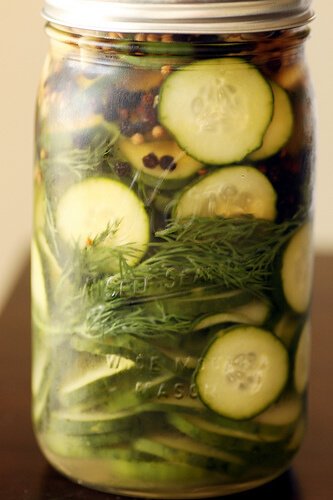
How to Store Pickles
Pickles are often used as a side dish to savory meals, as a quick snack, or as an ingredient to sandwiches, salads, and burgers. They’re most often made from cucumbers, but other veggies can be pickled too. The pickling process involves storing the veggies in a pickling solution, that usually consists of water, vinegar, sugar, and some spices.
Now let’s talk about storage. Pickles are fermented veggies, and their storage is very similar to storing sauerkraut. When you buy a jar, its most important characteristic is whether or not it was pasteurized. Most pickles you can find in the supermarket are, but if you look thoroughly, you often can find unpasteurized ones too.
The pasteurized ones usually sit on the shelves at room temperature. The pasteurization process kills all of the beneficial bacteria inside the jar, so the fermentation process has been stopped.
Because of that, all such a jar needs when it’s unopened is that it sits away from sunlight and sources of heat. A dark cabinet in the pantry or kitchen is a perfect choice.
Once you open the jar, keep the pickles in the fridge covered and sealed tightly.
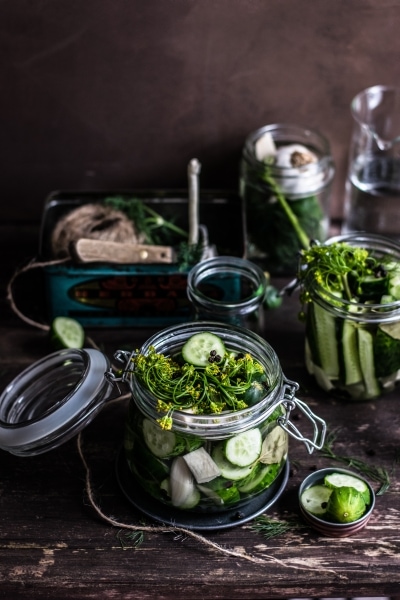
When it comes to unpasteurized pickles, they’re always sold refrigerated. That’s because the bacteria in the jar is still alive and the fermentation process is ongoing. So to slow down the process, the jar needs to be refrigerated.
If you stored it at room temperature, the fermentation process would resume, and the veggies turn sourer. Hence you should always store unpasteurized pickles in the fridge.
Like with its pasteurized counterpart, remember to keep the jar sealed tightly after breaking the seal.
No matter if pickles are pasteurized or not, always try to keep all the veggies submerged in the brine. The portion exposed to air will dry out, change in color and taste over time, and you definitely don’t want that. The same applies to pickled onions.
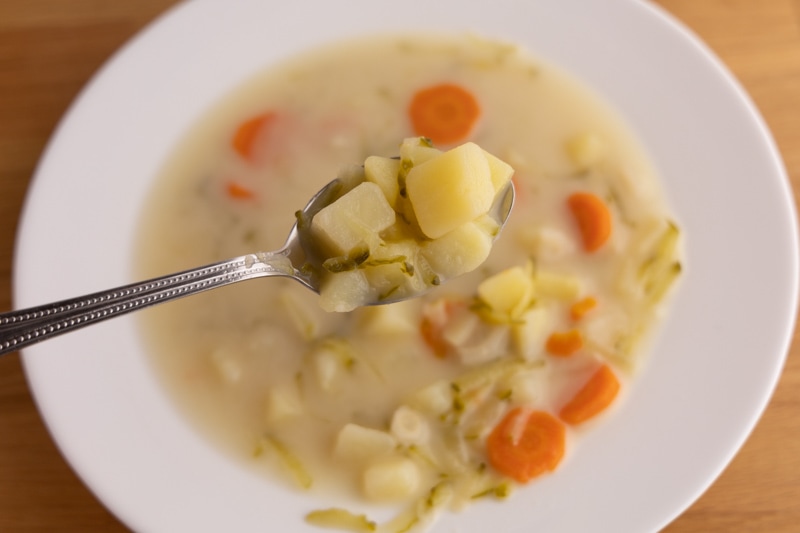
How Long Do Pickles Last
No matter which variety of pickles we’re talking about, the shelf life of both is pretty similar.
The jar usually comes with a best-by date, and that’s a good starting point. As long as the jar remains unopened, the pickles will easily last in great quality for months past that date. I mean, these are tightly sealed veggies in a solution loaded with preservatives (vinegar), so not much can happen to the produce.
Unpasteurized pickles may become slightly sourer as time goes by.
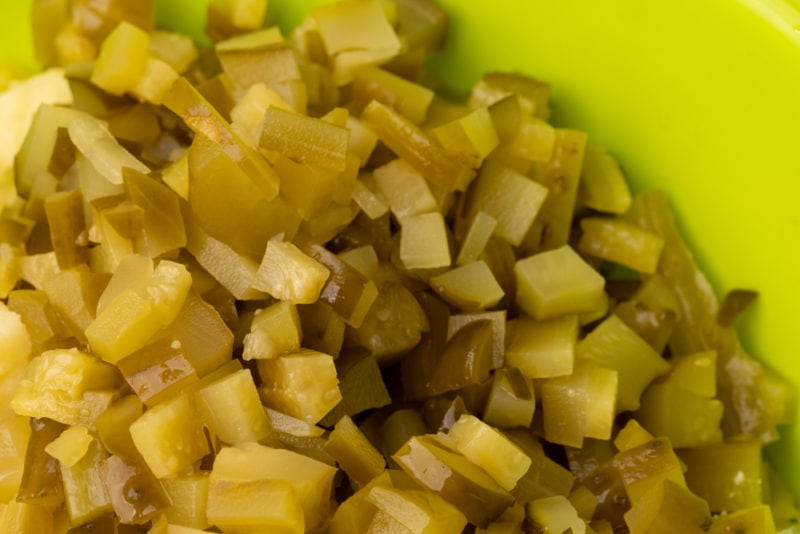
Once you open the jar, not much changes. All the slices and strips that are submerged in the brine will retain quality for at least a few months.
Please remember that any pieces that aren’t submerged will deteriorate quite quickly, like in a few weeks, and you will have to throw them out. But the rest that’s constantly submerged will remain perfectly fine.
(The same is true for another fermented food – kimchi. Check out my Does kimchi go bad? article for more details.)
| Pantry | Fridge | |
|---|---|---|
| Pickles (pasteurized, unopened) | Best-by + 3 months | |
| Pickles (pasteurized, opened) | 3+ months | |
| Pickles (unpasteurized, unopened) | Best-by + 3 months | |
| Pickles (unpasteurized, opened) | 3+ months |
Please note that the periods above are only estimates.
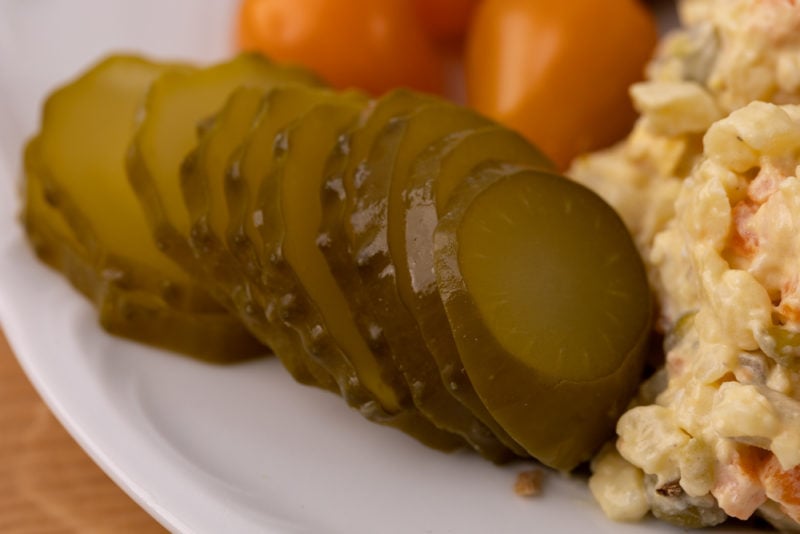
How to Tell If Pickles Have Gone Bad
First of all, let’s talk about the veggies that aren’t submerged in brine. Such veggies won’t last long, and if the jar sits in the fridge for more than a month, start by discarding these veggies. The rest is perfectly fine.
Generally speaking, pickles don’t spoil for a very long time if the brine is intact and veggies submerged in it. Pickles have a pleasant, acidic aroma and the pickling brine is usually pale amber in color. And white sediment at the bottom of the jar is perfectly natural too.
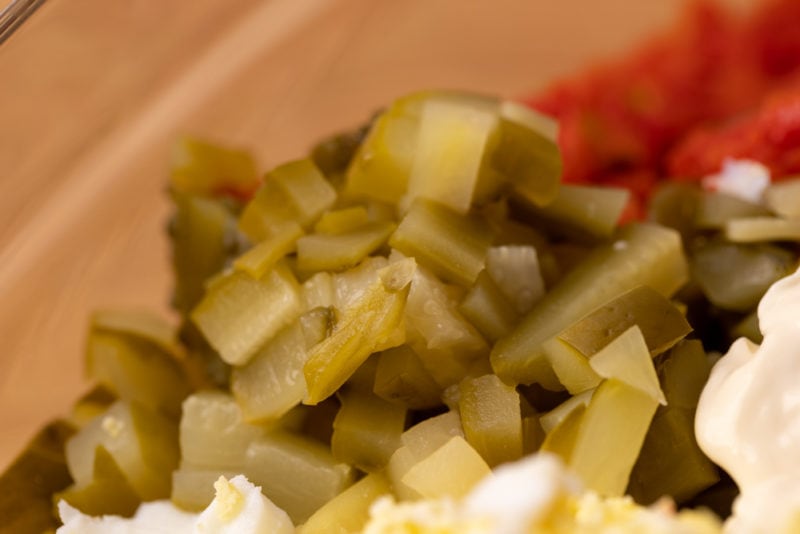
But if the odor the pickles give or the color of the brine changes noticeably, throw them out, just in case. Same thing if any signs of mold or any other organic growth show up. It’s highly unlikely that it will happen, but odd things do happen, so watch out for that.
If everything looks and smells okay, the last thing to do is to taste the pickled veggies. If they have lost their crunch, they are still safe to eat but feel free to throw them out for quality purposes. Basically, it’s your call if you eat them or not.
Rotten Records: Share Your Snap!
Caught some food past its prime? Upload your photo to “Rotten Records” and help others spot the signs of spoilage. Every image makes our food community safer and more informed!
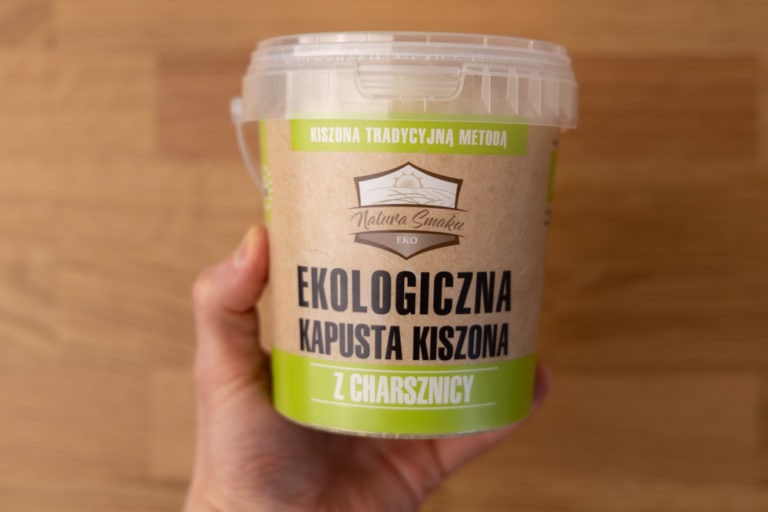
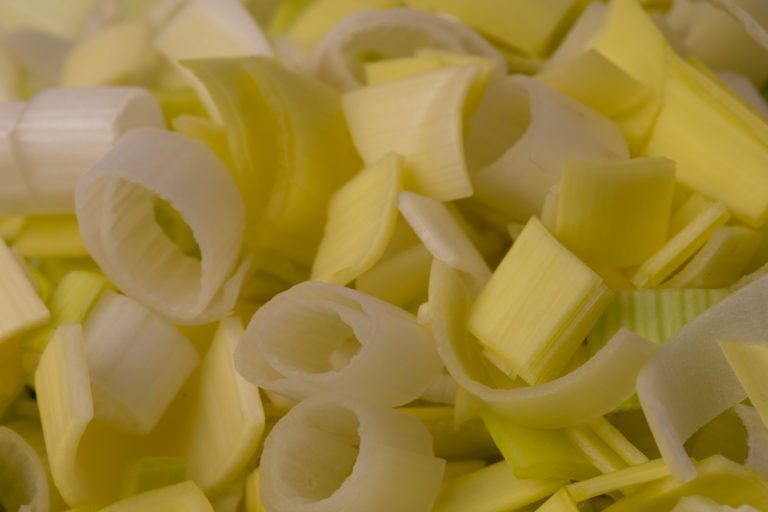
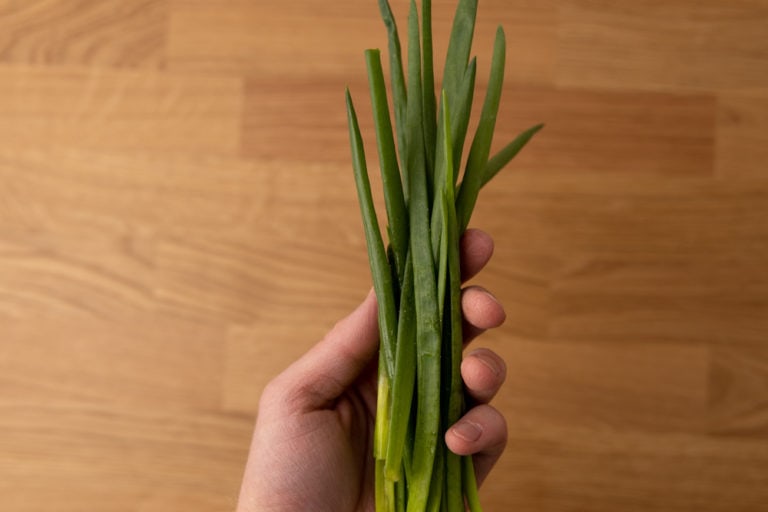
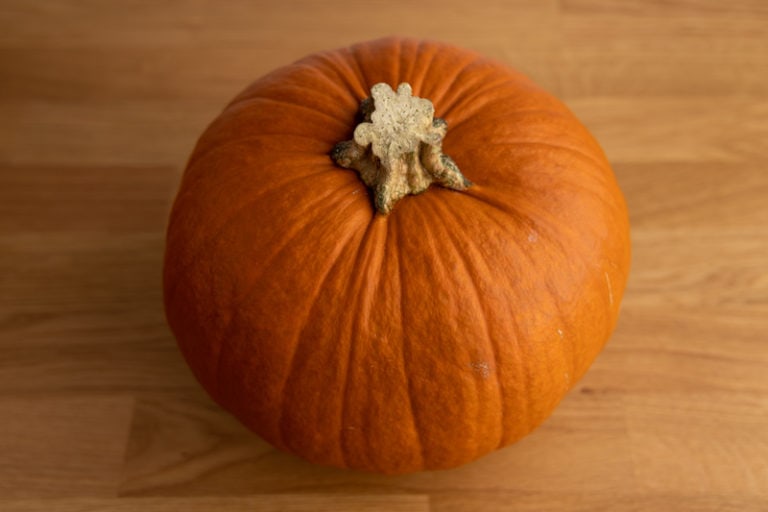
![How to Tell if Garlic Is Bad? [3 Signs of Spoilage]](https://www.doesitgobad.com/wp-content/uploads/Spoiling-garlic-bulb.jpg)